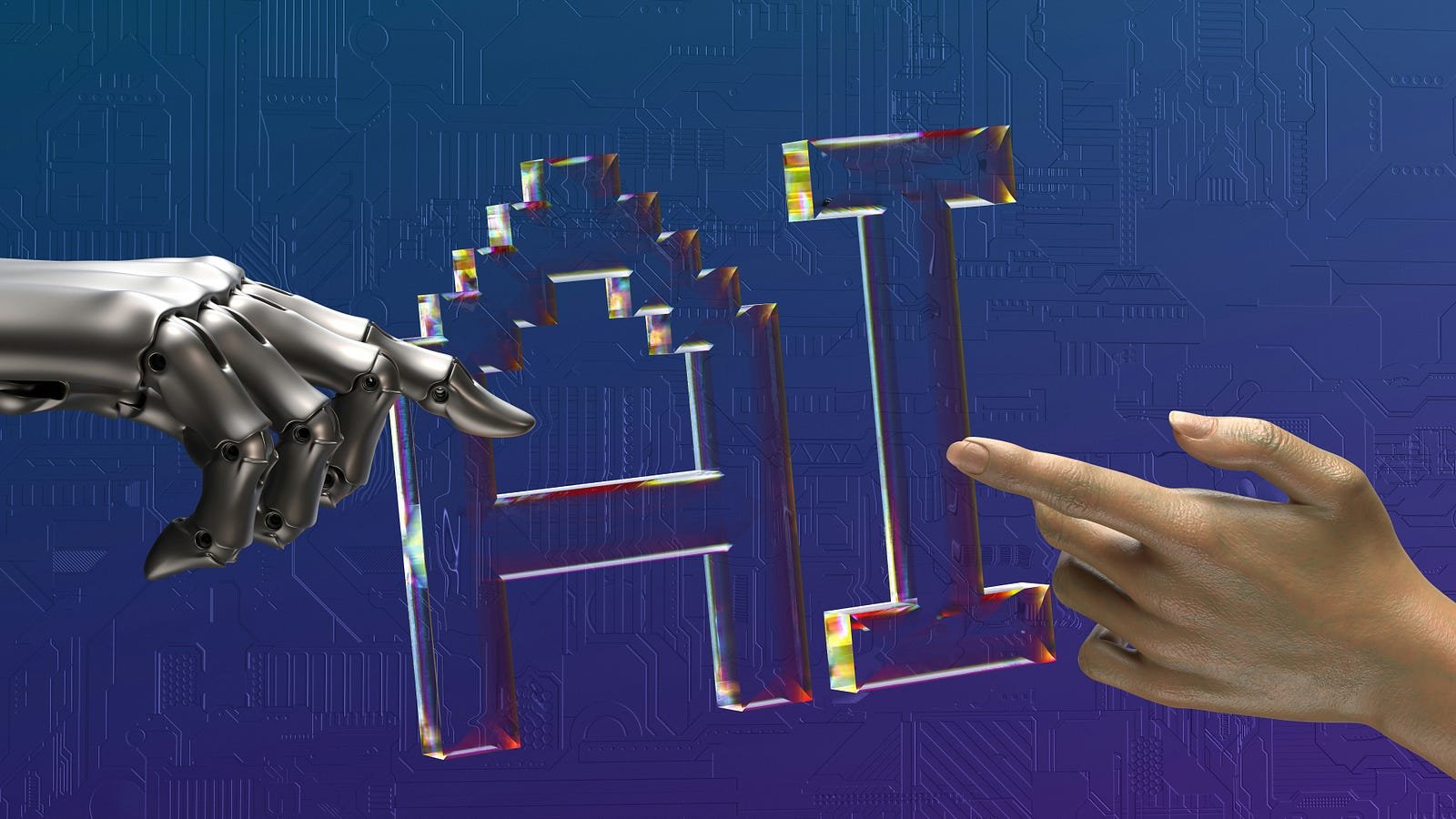In the fast-paced world of technology, staying ahead of the curve is crucial for businesses, innovators, and consumers alike. The next five years promise transformative changes, from advancements in artificial intelligence to breakthroughs in quantum computing and sustainable tech. Keeping an eye on these developments can prepare you to adapt, innovate, and thrive in the evolving digital landscape.
This article explores the most significant tech trends poised to shape the future and their potential impact on industries and daily life.
1. The AI Revolution: Beyond Automation
Artificial intelligence (AI) has already revolutionized industries, but its evolution over the next five years will be nothing short of extraordinary.
Generative AI and Personalized Experiences
Generative AI tools, such as ChatGPT and DALL·E, are becoming mainstream. Future iterations will integrate deeply into industries like healthcare, education, and entertainment. Imagine AI that creates personalized learning modules for students or generates tailored health plans for individuals based on genetic data.
AI in Decision-Making
AI’s role in augmenting decision-making processes will grow. Businesses will rely on AI-driven analytics for smarter forecasting, while governments may use AI for policy modeling to address complex issues like climate change and urban planning.

2. Quantum Computing: The Next Frontier
Quantum computing is transitioning from theoretical experiments to practical applications. Within the next five years, we may see quantum computers solving problems that were previously unsolvable.
Applications in Healthcare and Finance
Quantum computing could revolutionize drug discovery by simulating molecular interactions at an unprecedented scale. In finance, quantum algorithms could optimize portfolios and detect fraudulent transactions in real time.
Challenges and Adoption
Despite its potential, widespread adoption depends on overcoming hurdles like error correction and accessibility. However, major tech players such as Google and IBM are making significant strides.
3. The Rise of the Metaverse
The metaverse — a digital world where users interact through avatars in virtual environments — is no longer just a sci-fi concept. It’s becoming a reality, with major investments from companies like Meta (formerly Facebook) and Microsoft.
Enhanced Virtual Reality (VR) and Augmented Reality (AR)
VR and AR technologies will play pivotal roles in shaping metaverse experiences. Future headsets will be lighter, more immersive, and accessible to a broader audience, enabling virtual offices, interactive shopping, and enhanced social interactions.
Economic Opportunities
The metaverse is set to create entirely new economies. Digital real estate, virtual goods, and services could rival physical markets, opening up opportunities for entrepreneurs and content creators.
4. Green Tech and Sustainable Innovation
As the world confronts climate change, technology will play a critical role in fostering sustainability. The next five years will see the rise of green tech solutions aimed at reducing carbon footprints and promoting renewable energy.
Renewable Energy Innovations
Advances in solar, wind, and energy storage technologies will make renewable energy more efficient and affordable. Smart grids, powered by AI, will optimize energy distribution and consumption.
Sustainable Materials and Recycling
Tech companies will prioritize sustainable practices, from using eco-friendly materials in devices to developing efficient recycling programs for electronic waste.
5. 5G and the Dawn of 6G
The rollout of 5G is already underway, but its transformative potential will be fully realized in the coming years. Meanwhile, research on 6G is gaining momentum, promising even faster and more reliable connectivity.
5G Applications
- Smart Cities: 5G will enable real-time monitoring and management of urban infrastructure.
- Healthcare: Telemedicine and remote surgery will become seamless with ultra-low latency.
- Autonomous Vehicles: Reliable 5G networks will accelerate the deployment of self-driving cars.
What to Expect from 6G
6G, expected to emerge by the late 2020s, will focus on integrating AI into networks, improving bandwidth, and supporting advanced technologies like holographic communication.
6. Cybersecurity in a Hyperconnected World
As technology evolves, so do cyber threats. The next five years will demand advanced cybersecurity solutions to protect sensitive data and systems.
AI-Driven Security
AI will become a double-edged sword in cybersecurity. While it will be used to predict and prevent attacks, cybercriminals may also deploy AI to bypass defenses.
Zero-Trust Architecture
Organizations will increasingly adopt zero-trust models, assuming no user or system is inherently secure. This approach will minimize risks in cloud computing and remote work environments.
7. The Evolution of Robotics and Automation
Robots are becoming smarter and more versatile, transforming industries like manufacturing, logistics, and healthcare.
Human-Robot Collaboration
The rise of collaborative robots, or “cobots,” will enhance productivity by working alongside humans. From assembly lines to surgical rooms, cobots will handle repetitive or dangerous tasks.
Service Robots
Expect to see more robots in everyday settings, such as robotic assistants in retail or delivery drones dropping off packages.
8. Advances in Biotechnology
Biotechnology will undergo groundbreaking developments, driven by technologies like CRISPR and synthetic biology.
Personalized Medicine
Tailored treatments based on an individual’s genetic makeup will become more common, improving outcomes for diseases like cancer and rare genetic disorders.
Bioengineering Breakthroughs
Bioengineered products, from lab-grown meat to biodegradable materials, will address challenges in food security and environmental conservation.
9. The Democratization of Tech
The next five years will see technology becoming more accessible, bridging gaps in education, healthcare, and economic opportunity.
Affordable Devices
Smartphones, laptops, and wearables will become more affordable, ensuring broader access to digital tools.
Global Connectivity
Projects like SpaceX’s Starlink and OneWeb aim to provide internet access to remote areas, reducing the digital divide and unlocking new markets.
10. Ethical Tech and Digital Responsibility
As technology advances, ethical considerations will take center stage.
AI Ethics
Governments and organizations will establish guidelines to ensure AI is used responsibly, avoiding biases and maintaining transparency.
Sustainability Goals
Tech companies will face pressure to meet sustainability targets, from reducing energy consumption in data centers to sourcing ethical materials.
Why These Trends Matter
The technological shifts of the next five years will redefine how we live, work, and interact. Whether you’re a tech enthusiast, a business leader, or an everyday consumer, understanding these trends can help you prepare for the future.
From AI-driven personalization to quantum breakthroughs and sustainability innovations, the opportunities are vast, but so are the challenges. Staying informed and adaptable will be key to leveraging these advancements for personal and professional growth.
The next five years will be a transformative period for technology, driving innovation and reshaping industries. By staying ahead of these trends, you can harness their potential and navigate the challenges they bring.
Whether it’s embracing AI, exploring the metaverse, or investing in green tech, the future holds limitless possibilities for those who are ready to adapt and innovate. Now is the time to prepare for what’s next — because the future of tech is already unfolding.










